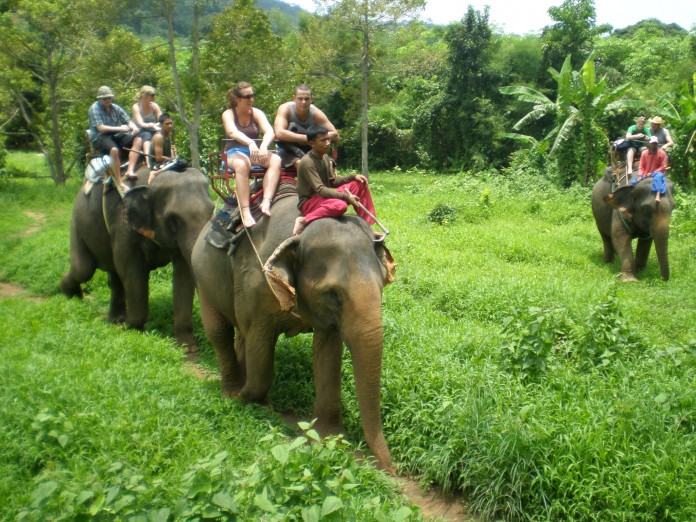World Animal Protection have now after several years of struggle succeeded to stop elephant riding with tourists in some places. While it is a step forward, there is much to be done.
“Elephant rides have mainly been on offer in Thailand and India, but it also takes place in Nepal and Viet Nam and other countries in Asia. Unfortunately it has now spread to South Africa, Zimbabwe, Zambia, and Botswana. Therefore it is urgent that we act now before it is too late. We estimate that 3000 elephants are used for rides and shows.
World-wide more than 80 travel agencies have now stopped promoting elephant rides. Nordic travel agencies count for more than 20 of those. It would be correct to say that Scandinavia has pioneered with 20 out of 80 travel agencies,” says Gitte Buchhave, CEO, World Animal Protection, Denmark.
It is Thomas Cook, Nordic, TUI Nordic, Apollo, Nordic and Albatros Travel and Jysk Rejsebureau in Denmark.
“The number of places that offer elephant rides to tourist is directly linked to the demand from tourists. As tourists become more aware of the cruelty involved in elephant rides more want to experience elephants in a different way. Therefore more and more families that own elephants are transitioning to a more elephant friendly tourism such as offering tourist to view elephants swim and bath. Our aim is that no travel agencies promote elephant rides and shows.”
”What happens to the elephants / residents who no longer have income from elephant riding?”
“World Animal Protection has developed guidelines to transition elephant attractions away from those that involve cruelty and mistreatment to force elephants to perform or rides, to what we call “elephant friendly”. An elephant friendly venue operates according to best possible welfare criteria and will not allow for any direct tourist-elephant interaction. Elephants are not bought or sold, bred or trained to perform.
Wild animals belong in the wild, but if it is not possible for elephants to be reintroduced to their wild homes, this is the type of captive home we want them to live in.
An elephant will always be a wild animal and there is always a risk in riding an elephant. However, in order for humans to be able to interact with an elephant it is “broken”.
Young elephants endure enormous cruelty during their extended ‘breaking’ sessions. Tied up and beaten, isolated, deprived of food and water – the tortuous “breaking” goes on for weeks when they are just a few months old
Every week new travel agencies world-wide take elephant rides out of their tour program. We are definitely moving in the right direction,” says Gitte Buchhave.
Decision
“TUI has taken a decision to extend the withdrawal of elephant riding and elephant shows across our TUI tour operations, following some areas of the group having already stopped selling these experiences. For our Nordic customers, the main destination affected by this decision is Thailand.
The reason is that we can no longer control that the elephant rides are being conducted in a manner that is in compliance with our ethical code for animal welfare,”says Nikolai Johnsen, Head of Press, TUI Nordic.
“We are working to phase out these activities where possible by the start of the winter season, November 1st 2015. We will be looking to only offer elephant friendly excursions to our tour operating customers, those where our customers can see elephants in a more natural habitat, learn more about elephants and can come in contact with them in a way that doesn’t demand unnatural behavior.
Since the elephant rides are being slowly phased out, we hope and believe that the local businesses will have time to adapt to a new situation.
We have had a large amount of positive feedback from animal rights organizations who believe that this is a step in the right direction. We expect a positive responsen from our customers.”
caa

























